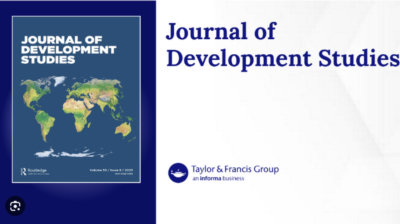Report in External Series
| 2010
Clustering as an Organizational Response to Capital Market Inefficiency:Evidence from Handloom Enterprises in Ethiopia
Using data from microenterprises of the handloom sector in four regions of Ethiopia, the paper shows that clustering, through specialization and division of labor, can lower entry barriers by reducing the initial capital required to start a business. This effect is found to be significantly larger for microenterprises investing in districts with higher levels of capital market inefficiency, indicating the importance of clustering as an organizational response to a constrained credit environment. The findings highlight the importance of cluster-based industrial activities as an alternative method of propagating industrialization when local conditions do not allow easy access to credit.






